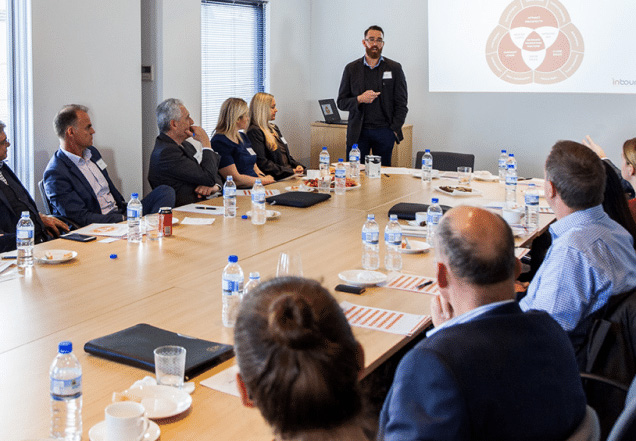Businesses we have helped grow across Australia
Are you tired of your website not being on page one of Google?
Maybe you’ve tried everything SEO. You’ve optimised your website, published blog articles, and even hired so called SEO “experts” who promise the world but deliver little.
Meantime, your competitors dominate page-one and your SEO rankings remain stagnant or even drop.
The truth? SEO isn’t just about keywords or backlinks. It’s about having a proven SEO system that engages visitors and satisfies their search intent.
Get a clear SEO strategy with transparent reporting and continuous search engine optmisation that climbs your search rankings and generates results.

How our SEO works
We are focused on quality SEO services that positions your business as a leader. Use SEO to generate high rankings, organic traffic, leads and sales and revenue.
Popular Features
Popular Features
Popular Features
Popular Features
Popular Features
Popular Features

Our proven SEO system that delivers visibility and rankings
Achieving sustainable SEO growth doesn’t have to be complicated. We’ve mastered a results-driven SEO system that consistently improves SEO rankings that results in increased traffic, leads and sales.

SEO Perth Guide
SEO basics
What is SEO?
SEO stands for Search Engine Optimisation. It is the process of ranking higher in search engines such as Google, Bing and Yahoo, to increase visitors to your website. There are hundreds of digital marketing SEO factors used when considering who should rank where on the search engine results pages (SERP).
Why do you need SEO?
The answer is simple, most traffic comes from Google organic search. There are over 4.5 billion Google searches per day and 1,709 billion websites (internetlivestats.com).
From our research, people prefer to click organic (SEO) results vs paid results. When you Google “Perth SEO Company”, Ahrefs suggests that 97% of users click SEO results instead of paid listings. Have a look at your Google Analytics data to see where you get most of your users:
SEO stands for Search Engine Optimisation. It is the process of ranking higher in search engines such as Google, Bing and Yahoo, to increase visitors to your website. There are hundreds of digital marketing SEO factors used when considering who should rank where on the search engine results pages (SERP).
Why do you need SEO?
The answer is simple, most traffic comes from Google organic search. There are over 4.5 billion Google searches per day and 1,709 billion websites (internetlivestats.com).
From our research, people prefer to click organic (SEO) results vs paid results. When you Google “Perth SEO Company”, Ahrefs suggests that 97% of users click SEO results instead of paid listings. Have a look at your Google Analytics data to see where you get most of your users:

Google Analytics -> Acquisition Report
It is important to get your website to rank higher with SEO. Does your website content rank on the first page for important keywords?
What are the benefits of SEO?
The purpose of SEO is to improve your keyword rankings. Most people will click on the first few search results:
It is important to get your website to rank higher with SEO. Does your website content rank on the first page for important keywords?
What are the benefits of SEO?
The purpose of SEO is to improve your keyword rankings. Most people will click on the first few search results:

Increasing your search engine exposure will lead to more website visitors.
When comparing SEO services to other channels, it has a better long term return on investment.
When comparing SEO services to other channels, it has a better long term return on investment.
Advertising costs have been steadily increasing due to competition, making many businesses focus on Google organic traffic to generate a consistent flow of visitors.
How do search engines work?
Search engines will send a “spider” (bot) to crawl the internet to collect information (content, title tags etc) on websites. This information is indexed in their database.
Algorithms are used to navigate their index ‘database’ to determine how to rank websites based on particular keywords. Search engines want to deliver results/content that satisfy the searcher’s query/intent.
How do you get on Google?
Getting onto Google is quite simple. Ranking for competitive keywords is not quite as easy.If you want to get your content listed/indexed on Google, we recommend:
How do search engines work?
Search engines will send a “spider” (bot) to crawl the internet to collect information (content, title tags etc) on websites. This information is indexed in their database.
Algorithms are used to navigate their index ‘database’ to determine how to rank websites based on particular keywords. Search engines want to deliver results/content that satisfy the searcher’s query/intent.
How do you get on Google?
Getting onto Google is quite simple. Ranking for competitive keywords is not quite as easy.If you want to get your content listed/indexed on Google, we recommend:
We also recommend setting up a Google My Business account and acquiring backlinks from websites or directories.
SEO best practices
There are hundreds of factors that search engine’s algorithms access to calculate rankings.
There are a couple of basics you need in place first:
There are a couple of basics you need in place first:
Get a good domain name for your website
We recommend keeping an established domain name because it would have built up authority but the following does help (not required):
We recommend keeping an established domain name because it would have built up authority but the following does help (not required):
We recommend having your business name in the domain name, not the keyword. Bonus if your business name has the target keyword.
Use the right website platform
The right platform for your website will depend on many factors but you need to consider SEO in your selection process.
We recommend development with WordPress because it’s open-source (support) and easy SEO setup. There are multiple WordPress SEO plug-ins available.
Another popular option is Webflow, which has SEO options built in.
Other website platforms, such as Wix, Squarespace, etc., are all great alternatives and less technical.
Make sure it’s fast loading
Multiple factors can affect website speed, such as the website platform, theme/code and hosting provider.
Use a Google PageSpeed Insights tool to identify opportunities to improve your website speed.
We recommend going with WPEngine for a WordPress website because they specialise in faster WordPress performance and load time.
Create a great user experience
Websites are created for people, NOT search engines. So don’t create pages by inserting keywords everywhere.
Search engines have identified that creating a good user experience is important and thus reward websites with positive user experiences.
Create an SEO structure
Both humans and Google’s algorithms prefer structure.
Before creating your website content make sure to sketch the page layout and map the hierarchy of pages, so it is easy for humans to navigate and Google to find and understand what the content is about.
Back in the day, Google provided pages with a ‘PageRank’ and linking pages together would pass link juice “value” from page to page.
Use the right website platform
The right platform for your website will depend on many factors but you need to consider SEO in your selection process.
We recommend development with WordPress because it’s open-source (support) and easy SEO setup. There are multiple WordPress SEO plug-ins available.
Another popular option is Webflow, which has SEO options built in.
Other website platforms, such as Wix, Squarespace, etc., are all great alternatives and less technical.
Make sure it’s fast loading
Multiple factors can affect website speed, such as the website platform, theme/code and hosting provider.
Use a Google PageSpeed Insights tool to identify opportunities to improve your website speed.
We recommend going with WPEngine for a WordPress website because they specialise in faster WordPress performance and load time.
Create a great user experience
Websites are created for people, NOT search engines. So don’t create pages by inserting keywords everywhere.
Search engines have identified that creating a good user experience is important and thus reward websites with positive user experiences.
Create an SEO structure
Both humans and Google’s algorithms prefer structure.
Before creating your website content make sure to sketch the page layout and map the hierarchy of pages, so it is easy for humans to navigate and Google to find and understand what the content is about.
Back in the day, Google provided pages with a ‘PageRank’ and linking pages together would pass link juice “value” from page to page.
How to do SEO
There are many SEO techniques, and below I have outlined the process of an SEO strategy:
Keyword Research
Identifying the right keywords your customers are searching for is the foundation of SEO.
During this process, you want to collect the following data:
Keyword Research
Identifying the right keywords your customers are searching for is the foundation of SEO.
During this process, you want to collect the following data:
Data is collected by tools outlined later in this article.
On-Page SEO
Now you know the keywords you want to target, it is time to optimise your website for these keywords.
On-Page SEO is about making sure your page is relevant to the keyword term. For example, if you Google “Perth SEO” our page will talk about SEO in Perth.
Below we have outlined the main website SEO elements you need to optimise:
On-Page SEO
Now you know the keywords you want to target, it is time to optimise your website for these keywords.
On-Page SEO is about making sure your page is relevant to the keyword term. For example, if you Google “Perth SEO” our page will talk about SEO in Perth.
Below we have outlined the main website SEO elements you need to optimise:
Analyse your competitors websites to assess their content, along with word count, to put together the best content to suit your website visitors needs.
Link Building
Also known as “Off-Page SEO”, link building is the process of acquiring links from other websites. These backlinks act as “votes” and show Google that your website is reputable.
There are many different ways to acquire backlinks, below are just a few:
Link Building
Also known as “Off-Page SEO”, link building is the process of acquiring links from other websites. These backlinks act as “votes” and show Google that your website is reputable.
There are many different ways to acquire backlinks, below are just a few:
Above are just a few link types, but not all links are equal. Where you get the backlink from is important too.
Acquiring a link from a low-quality website isn’t as valuable as a link from a popular website.
Also, it’s essential to get backlinks from relevant websites, so if you provide SEO services, acquiring a link from Moz.com or Ahrefs.com would be beneficial.
There are two backlink types:
1. Dofollow backlinks – the most valuable and tells Google to follow the link
2. Nofollow backlinks – these are less common and tells Google to ignore the link
Technical SEO
Technical SEO is the process of analysing the website for any errors, issues and warnings that will affect your SEO.
Search engines will crawl your website and if you have any technical issues restricting it from finding, understanding or indexing your website, you could be penalised.
A detailed technical SEO review will analyse the following:
Acquiring a link from a low-quality website isn’t as valuable as a link from a popular website.
Also, it’s essential to get backlinks from relevant websites, so if you provide SEO services, acquiring a link from Moz.com or Ahrefs.com would be beneficial.
There are two backlink types:
1. Dofollow backlinks – the most valuable and tells Google to follow the link
2. Nofollow backlinks – these are less common and tells Google to ignore the link
Technical SEO
Technical SEO is the process of analysing the website for any errors, issues and warnings that will affect your SEO.
Search engines will crawl your website and if you have any technical issues restricting it from finding, understanding or indexing your website, you could be penalised.
A detailed technical SEO review will analyse the following:
When assessing your SEO, you want to measure the following website metrics:
Note: SEO can take time to take effect and results can fluctuate. Be patient.
SEO tools
You will need a bunch of SEO tools to complete the job.
Below we have outlined a few tools we use:
Below we have outlined a few tools we use:
Why do I need SEO?
There are over 4.8 billion Google searches per day and 1,889 billion websites.
It is important to get your business website to stand out in Perth with SEO.
Does your website rank on the first page on Google for important keywords? If not, you might be losing potential clients.
Statistics
It is important to get your business website to stand out in Perth with SEO.
Does your website rank on the first page on Google for important keywords? If not, you might be losing potential clients.
Statistics
- Organic SEO is about 5.66 times better than paid search ads. (New Media Campaigns, 2018)
- 70-80% of search engine users are only focusing on the organic results. (MarTech, 2018)
- 66% of marketers say improving SEO and growing their organic presence is their top inbound marketing priority. (HubSpot, 2016)
How does SEO work?
Search engines, such as Google, Bing & Yahoo will send a “spider” (bot) to crawl the content to collect information on websites. This information is indexed in their database. They will use their algorithms to navigate their index to rank websites based on a particular search query (keyword).
Search engines want to deliver results that satisfy the searcher’s query/intent.
Search engines focus on two factors:
Search engines want to deliver results that satisfy the searcher’s query/intent.
Search engines focus on two factors:
- SEO Relevance – search engines are looking at the page content, keywords and visitor engagement.
- SEO Reputation – signals such as backlinks, reviews, social media engagement, user experience, etc.
Here is our SEO process:
- Keyword Research
- On-Page SEO
- Link Building
- Technical SEO
Read our detailed SEO Guide.
How long does SEO take?
The time it takes for search engine optimisation to work will depend on the keyword difficulty and desired results.
When we first start SEO for clients, we will perform a competitor analysis to understand the gap between your SEO.
Once you know the SEO gap, you can create an SEO strategy to bridge the gap and get a competitive advantage in the search engine results.
We do not have any long term binding SEO contracts because we believe that our SEO service can start generating results in a relatively short period of time.
When we first start SEO for clients, we will perform a competitor analysis to understand the gap between your SEO.
Once you know the SEO gap, you can create an SEO strategy to bridge the gap and get a competitive advantage in the search engine results.
We do not have any long term binding SEO contracts because we believe that our SEO service can start generating results in a relatively short period of time.
How much does SEO cost?
The SEO services you require will vary according to your competitor gap analysis.
SEO companies will offer their SEO services by the hour, one-off projects or with SEO retainers.
A professional Perth SEO agency could charge a business retainer from $1500+ /mo for various SEO services.
WARNING: Select an SEO company that does conversion rate optimisation with a focus on user experience because maximising website traffic will improve return on investment.
SEO companies will offer their SEO services by the hour, one-off projects or with SEO retainers.
A professional Perth SEO agency could charge a business retainer from $1500+ /mo for various SEO services.
WARNING: Select an SEO company that does conversion rate optimisation with a focus on user experience because maximising website traffic will improve return on investment.
How do we measure SEO success?
The reason we do SEO is to achieve your goals.
We monitor the following search results:
We monitor the following search results:
How to choose an SEO company?
It would be best if you must take your time choosing a reputable SEO Perth Agency or SEO service.
Here is a simple checklist:
Here is a simple checklist:









